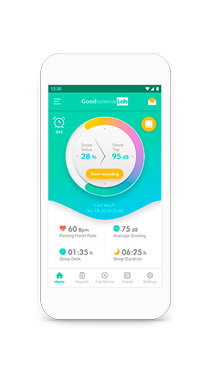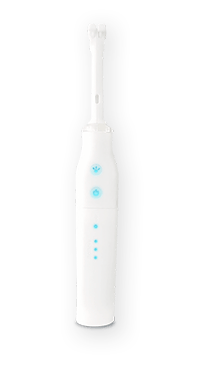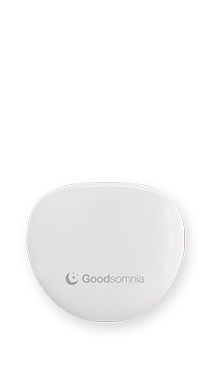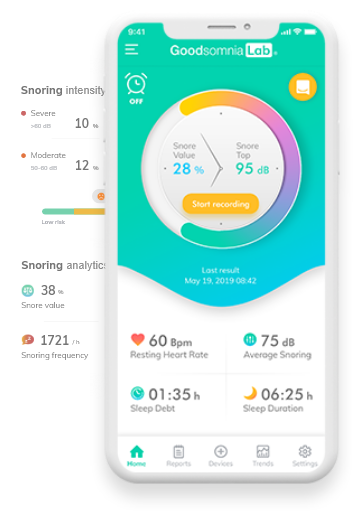Why do people snore? Usually, this is due to blocked airways preventing normal breathing. Whenever the obstruction appears, it makes throat tissues tremble, so causing the snore. Tongue, nasal congestion, soft palate, glands: the source of the blockage can be anywhere.
How does tongue-based snoring occur?
Generally, there are two possible scenarios:
- Muscle malfunction: the tongue drops to the back of your throat, blocking your breathing.
- Overweight: fat increases the mass and volume of the tongue, making it harder to breath).
How to figure out if you’re a tongue snorer?
Once you’ve identified that you snore (with the help of a partner, a snore recorder app, polysomnography), it’s necessary to understand its nature. The British Snoring and Sleep Apnea Association suggests making a quick test for checking on tongue-based snoring.
- Open your mouth and try to make a snoring sound. It shouldn’t be challenging.
- Then, show out the tongue as far as you can and bite it slightly with your teeth.
- Try making a snoring sound again. If the noise gets quiet or disappears, there’s a high chance; your snoring is tongue-based.
Tongue exercises to stop snoring: useful or not
If you want to keep your body fit, you do a workout. So physical activity works pretty well for tongue snoring too. It’s a win-win way to reduce the snore because you can both burn tongue fat and improve muscle tone. The more muscles you involve, the better the result.
It’s always hard to start, so maybe some statistics will motivate you. Researches show that 40 minutes per week can be enough to have visible improvements. Also, mouth, tongue and throat exercises for snoring reduce the severity of sleep apnea by 50%. Last but not least, exercise is the most natural and painless way to reduce snore.
What’s interesting, a significant number of exercises can be borrowed from singers, who master different types of sounds. Here are some basic snoring tongue exercises you can try:
- Open your mouth, slide the tip of your tongue back along your hard palate as far back as it will go. Repeat several times.
- Open your mouth, stick your tongue against the roof of your mouth and suck it upwards. Hold for 2 seconds and repeat.
- Open your mouth, forcing the back of your tongue against the floor of your mouth but keep the tip in contact with your lower front teeth.
- Pull your cheek out with your finger, use your cheek/mouth muscles to pull the finger back in. The movements can remind the jumps of a frog.
- Elevate the back of your throat by sounding “aah”. After regular practice, you should be able to raise your uvula (the dangling part) without making a sound.
The power of physical exercise works pretty well for numerous health issues as does use the free Goodsomnia Lab snore recording app that monitors and provides statistics on your snore.














